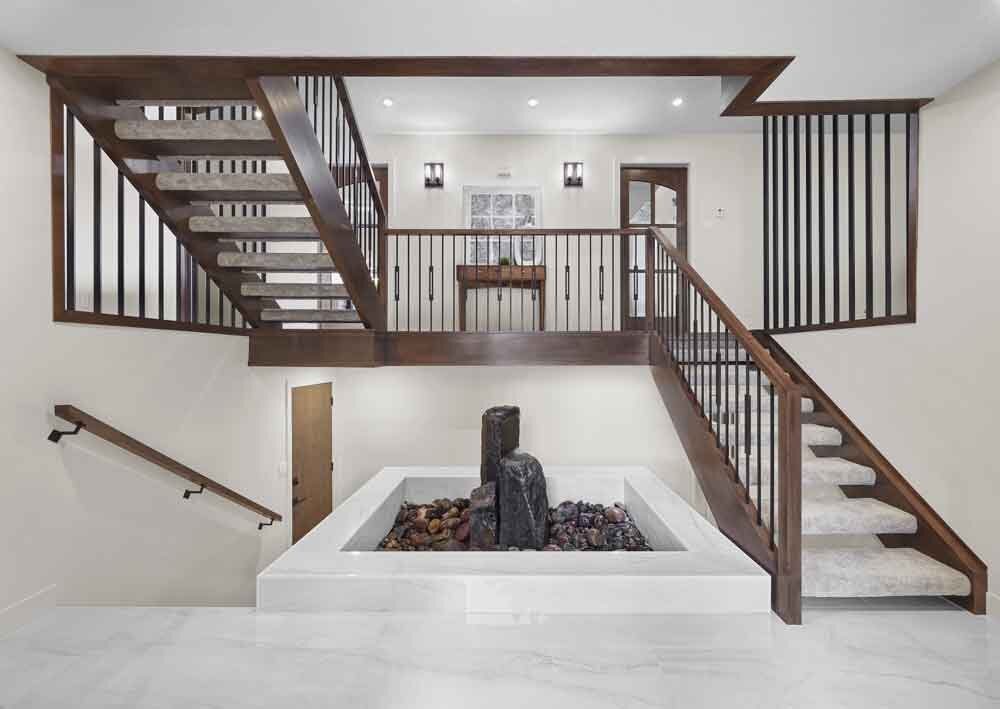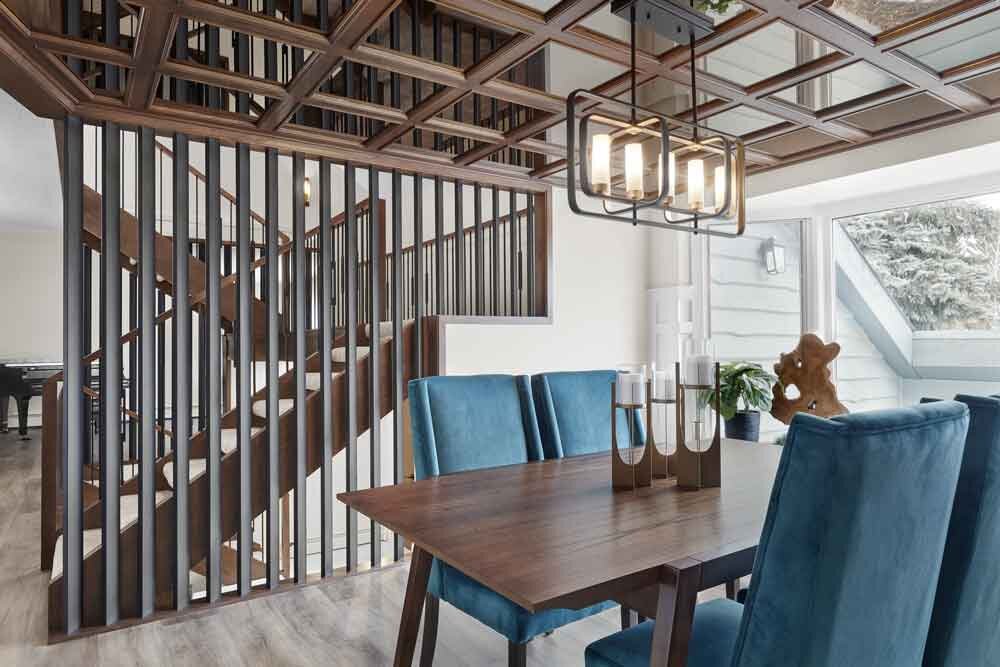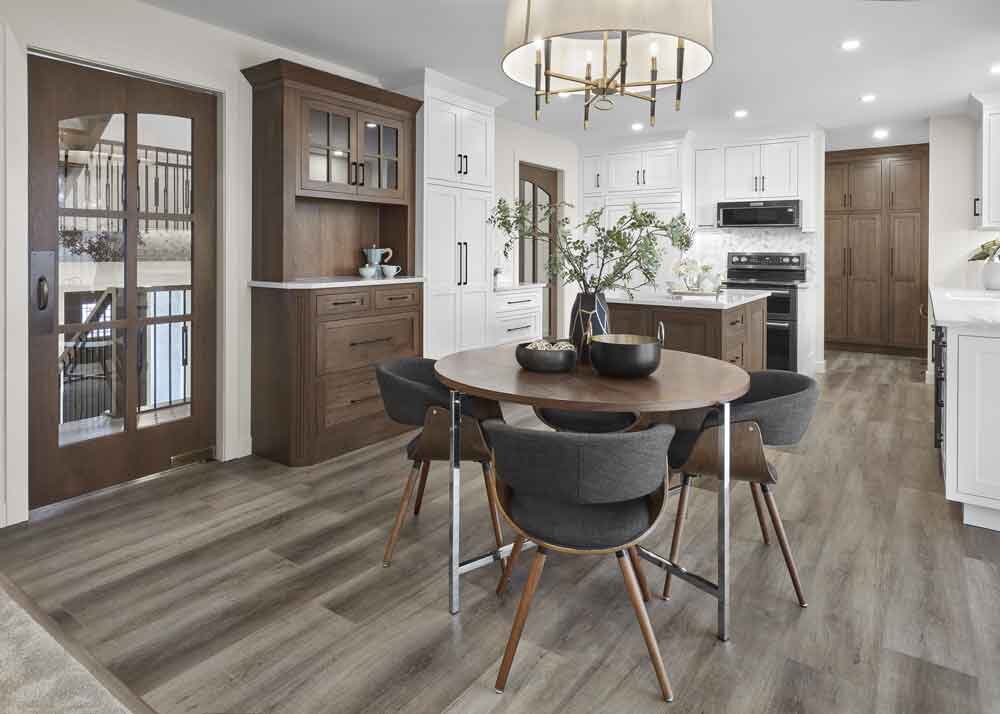Challenging market conditions have added additional importance to home renovations since the start of COVID-19, both for those looking to stay and those selling, according to RE/MAX's 2021 Renovation Investment Report
More than half of Canadians renovated their home in 2020 with the intention of living in it, with 29 per cent renovating to enhance their lifestyle for non-essential reasons (aesthetic and/or recreational purposes) and 29 per cent doing so for essential reasons (safety and maintenance)
Only 16 per cent of Canadians said they renovated to increase the market value of their home in order to sell within in the next one to three years
Toronto, ON and Kelowna, BC, April 6, 2021 – A new report by RE/MAX Canada is shedding light on shifting consumer trends in home renovations and the perceived return on investment (ROI), as impacted by COVID-19 and historically tight market conditions. The RE/MAX 2021 Renovation Investment Report found that more than half of Canadians renovated their home last year for personal/non-ROI purposes, with three-in-ten (29 per cent) choosing to renovate for non-essential "lifestyle" reasons, such as recreation-inspired projects.
A Leger survey conducted on behalf of RE/MAX Canada found lifestyle impact to be the top reason for renovating during the course of the pandemic, ahead of motives such as making essential renovations to accommodate life in lockdown (17 per cent), or to increase the value of the home with the intention of selling in the next one to three years (16 per cent).
Despite the trend of home renovations for personal use and enjoyment, 59 per cent of Canadians still said they always consider the return on investment that a renovation will have on their home's overall market value, so while there is a current renovation trend based on lifestyle aspirations, practicality is never far from the surface.
"The notion of the home as an investment continues to be an important consideration for Canadian homeowners; however, they clearly value the home for what it is meant to be: a place to live and enjoy spending time," says Elton Ash, Regional Executive Vice President, RE/MAX of Western Canada. "The pandemic has influenced virtually every aspect of our lives, including what Canadians want and need in a home. The uncertainty also compelled many sellers to move to the sidelines or renovate their home to accommodate current quality-of-life needs, which has further tightened market conditions."
This lack of inventory is expected to be a continuing factor in the spring housing market. In its market outlook for 2021, RE/MAX identified seller's market conditions in 82 per cent of regions, with a spike in demand for single-family dwellings putting additional pressure on already limited supply.
"Canadian real estate has continued to perform above and beyond expectations, with an increased opportunity for sellers to see a strong return on their investment given current demand," says Christopher Alexander, Chief Strategy Officer and Executive Vice President, RE/MAX of Ontario-Atlantic Canada. "As we've seen over the past year, strong seller's markets continue to dominate many regions across Canada, with homes selling in record time and at record prices. While the impact that specific renovations have on ROI will vary by regional conditions, the market has generally shown us that you can't go wrong with anything that improves your home in any way."
With this in mind, nearly one year after the start of cross-country lockdowns, Canadians are still making renovation decisions based on pandemic living, with over half (55 per cent) of survey respondents stating that they have already done or would like to do a home renovation within the next year. Of this group, 35 per cent say they would opt for minor renovations, such as painting.
RE/MAX brokers across Canada were also surveyed for the report and identified fresh paint and landscaping as two upgrades that yield a high ROI, despite being low-budget and minor in nature. This is in alignment with and good news for the nearly half (47 per cent) of Canadians who said they would want to keep their home improvement budget below $10,000, even if the guaranteed ROI was at least 10 per cent. Three-in-ten Canadians (31 per cent) would bump up their spending from $10,000 to just under $50,000, and only four per cent would consider spending more than $50,000.
Sixty-five per cent of RE/MAX brokers surveyed also claim that kitchen upgrades, including cabinets, countertops and appliances, yield the highest ROI for sellers, with 87 per cent of brokers naming the kitchen renovation as the top home improvement sought out by homebuyers.
Regional Market Insights
In Western Canada, Calgary, Edmonton and Victoria, homebuyers want the move-in-ready experience, with homes that are already entirely renovated being most in demand. Given this, sellers in these regions have the potential to see a large return on their renovation investment. In Greater Vancouver, outdoor improvements are one of the optimal ways for homeowners to get the best ROI, with landscaping among the top five renovations to undertake. It's also one of the most common renovations that homeowners in this region are taking on themselves, versus hiring a professional to do the work.
Throughout Ontario, RE/MAX brokers are reporting that listings are selling quickly, regardless of their condition or renovation status. Regions including Toronto, Ottawa, Hamilton-Burlington, Niagara, London and Kingston/Napanee saw a strong shift toward outdoor upgrades and amenities in 2020, specifically the addition of a pool or larger exterior living area. Much of this demand was prompted by COVID-19 and the desire for more recreational space within the home – a trend that is not anticipated to be a permanent one. Bathroom renovations and new flooring are highly regarded as yielding the best return on investment. Across markets such as Mississauga, Thunder Bay, London, Barrie and Ottawa, painting is noted by RE/MAX brokers as the top renovation that homeowners are doing themselves, as well as one of the best ways to also see an improvement on ROI.
In the Atlantic provinces, RE/MAX brokers also placed importance on upgraded kitchens, but noted flooring upgrades as one of the best renovations for homeowners to get optimal ROI in regions including Fredericton, Saint John and St. John's. Meanwhile in Charlottetown, roofing upgrades and landscaping are two of the top renovations that can be done relatively quickly to improve ROI, along with painting, as echoed across nearly all regions surveyed. In Saint John, the finished basement is one of the most sought-after renovations by buyers and creating more open-concept spaces is noted as one of the top three ways for sellers to get the best return on their investment.
Consumers' Understanding of ROI
Only 51 per cent of Canadians claimed to have a thorough grasp of the renovation process and nearly half either don't know or disagree that they have the understanding needed to make ROI-enhancing renovation decisions. Furthermore, 50 per cent of Canadians surveyed said they expect their REALTOR® to advise them on the right renovations to take on if they expressed interest in doing so when purchasing a home. This reliance on external professionals to guide home-buying decisions is anticipated to continue.
Additional highlights from the 2021 RE/MAX Renovation Investment Report:
When it comes to the renovations that yield the best return on investment, Canadians see these as the best renovations to undertake:
70 per cent of Canadians state redesigning larger spaces, such as kitchens or washrooms
56 per cent of Canadians state minor updates, such as refreshing paint
55 per cent of Canadians state landscaping the outdoor space
50 per cent of Canadians state changing the home layout, including adding rooms or knocking down walls
32 per cent of Canadians state updating décor and furniture
49 per cent of Canadians prefer to contract out most or all of the renovation work
33 per cent of Canadians consider themselves to be very capable when it comes to home renovations, and don't need professional help
About the 2021 RE/MAX Renovation Investment Report
The 2021 RE/MAX Renovation Investment Report includes data from RE/MAX brokerages. RE/MAX brokers and agents are surveyed on insights and local developments. Regional summaries with additional broker insights can be found at remax.ca.
About Leger
Leger is the largest Canadian-owned full-service market research firm. An online survey of 1,540 Canadians was completed between February 4-7, 2021, using Leger's online panel. Leger's online panel has approximately 400,000 members nationally and has a retention rate of 90 per cent. A probability sample of the same size would yield a margin of error of +/- 2.5 per cent, 19 times out of 20.
























































